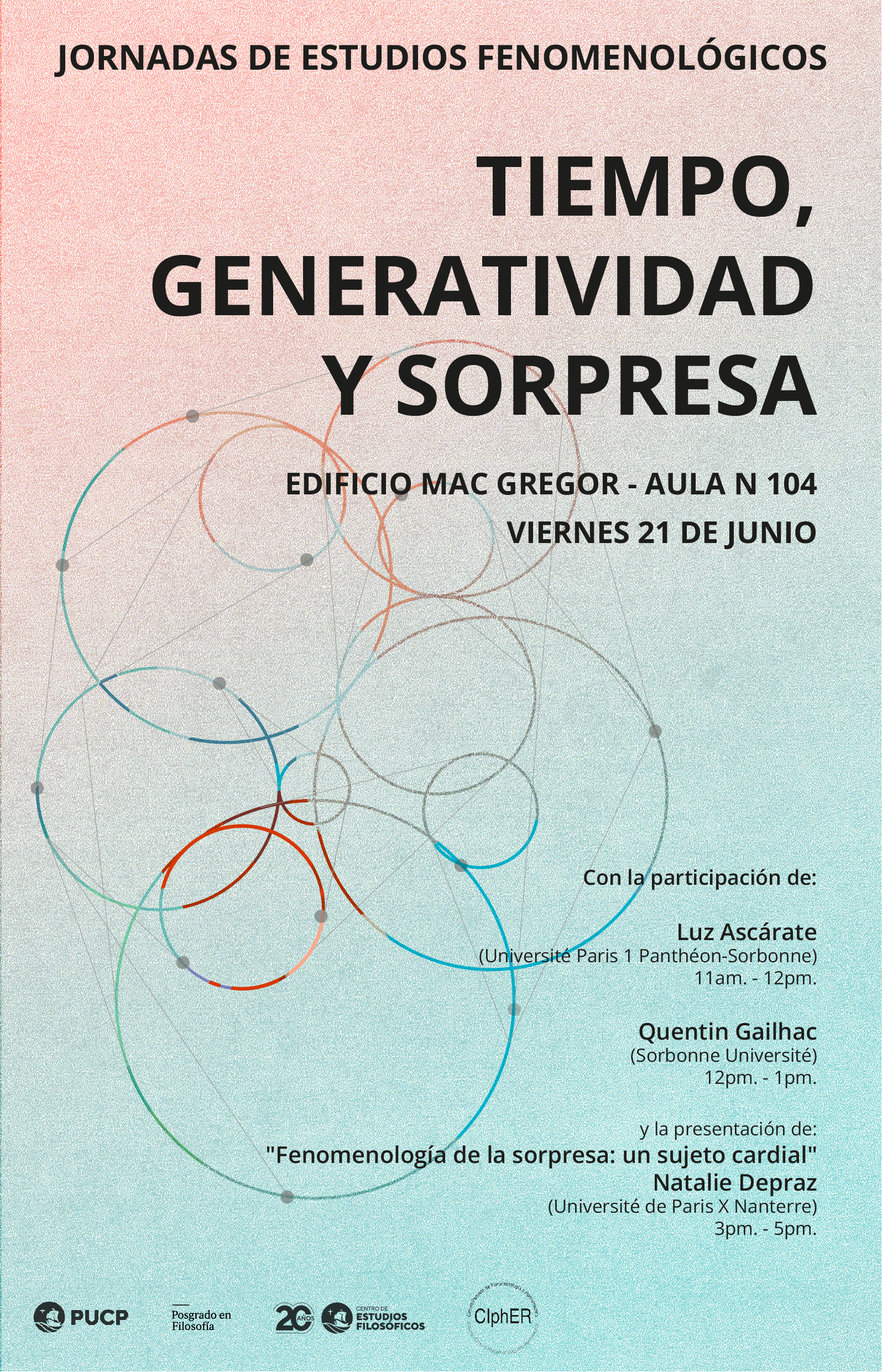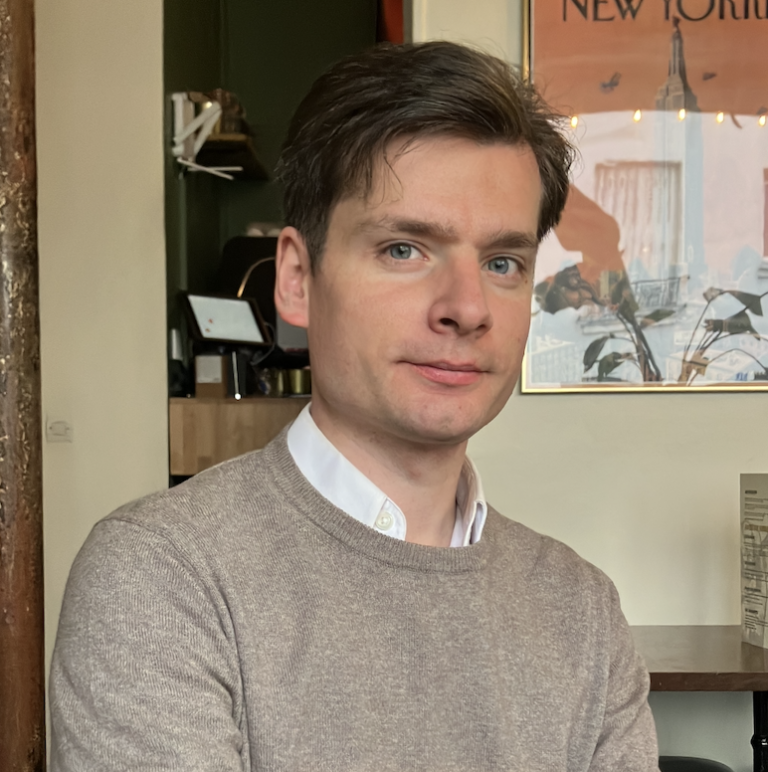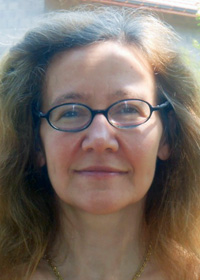-
Inicio
Del 21/06 al 21/06 -
Ubicación
Mac Gregor, N 104, PUCP and Online
Presentación

Speakers

Luz Ascárate
Luz ASCARATE is a non-tenured professor and researcher (ATER) at the University Paul Valéry Montpellier 3 and a PhD in philosophy from PUCP and EHESS. She is currently pursuing a second doctoral thesis, in metaphysics, under the supervision of Renaud Barbaras, at the University Paris 1 Pantheon-Sorbonne. Agrégée in philosophy, she is the author of the book Imaginer selon Paul Ricoeur. La phénoménologie à la rencontre de l’ontologie sociale (Paris, Hermann, 2022) and editorial secretary of Klēsis. Revue philosophique. She recently received the young researcher award from the Foundation de Treilles 2024 (France).

Quentin Gailhac
Quentin GAILHAC is an associate professor at the University of Paris Cité and a researcher at the University Paris 1 Panthéon-Sorbonne (HIPHIMO laboratory). He holds a PhD in philosophy from the University of Paris 1 Panthéon-Sorbonne. He is a graduate of the École Normale Supérieure de Lyon (2013-2017) and the Conservatoire de Paris (CNSMDP, 2016-2020). Agrégée in philosophy, he is the author of the book De la répétition. Langage musical et formes de l’invariance (Paris: Musica Falsa, 2022) and co-editor of the collective book titled Generative Words. New Phenomenological Perspectives on Space and Time (Lanham: Lexington Books, 2022).

Natalie Depraz
Natalie Depraz obtained her PhD in Philosophy at the University of Paris Nanterre. She is currently Professor of contemporary philosophy and German philosophy at the Université de Paris X Nanterre, member of the Husserl Archives (ENS/CNRS) of Paris, and founder of the l’École rouennaise de phénoménologie. She is co-founder of Alter, Revue de Phénoménologie, as well as its current Director. Since 2020, she holds the Chair of Excellence in Philosophy at the University Galatasaray of Istanbul. She is an internationally renowned phenomenologist, with research related to cognitive sciences, psychopathology, neuroscience, the arts, and religion. She collaborated closely with the neurobiologist Francisco Varela, and has translated the works of authors like Husserl and Fink into French. Especially notorious amongst her numerous publications are Attention et vigilance, à la croisée de la phénoménologie et des sciences cognitives (Paris, 2014), and Le sujet de la surprise, un sujet cardial (Bucharest, 2018).
Resumenes
Possibility and generativity. From Plotinus to Husserl.
Luz Ascárate (Universidad París 1 Panthéon-Sorbonne)
If we pay attention to passages from Treatise 38 of Plotinus’ Enneads and Husserl’s Husserliana XV, we find that both philosophers reflect upon the unified diversity of living things. For Plotinus, this unity is characterized as a “power of the whole”, which implies a concept of possibility, not as opposed to efficiency or as a manifestation of passivity, but as the generating principle of everything that exists in its various forms. For Husserl, this unity is characterized as generativity (Generativität), a concept that arises from a descriptive regression to biological genesis – which differs from the constitutive genesis carried out by the phenomenologizing ego (phänomenologisierenden ego). Generativity accounts for the interweaving of real and possible experiences of self and other. A dialogue between these two ways of understanding the unity of life, as a principle or as genesis, enables a definition of “possibility” as expressing the concrete diversity of living things.
The Temporality of sound. Phenomenological reflections.
Quentin Gailhac (Universidad París Cité)
While writing the Bernau Manuscripts, Husserl wrote to Ingarden, in a letter dated April 5, 1918, that “the phenomenology of time cannot be resolved purely by itself.” This means that the phenomenology of time is related to the problem of individuation, namely, to the constitution of individual beings and their forms. The meaning of this statement is examined by revisiting Husserl’s research on time around his 1905 Lectures and their accompanying research manuscripts. This entails not only a redefinition of the conceptual couple form-matter, but above all a characterization of the specific phenomenological status of sound in relation to time. Our treatment of sound allows us here to distinguish between temporal unity and the individuation of temporal beings.
Presentation of “Fenomenología de la sopresa: un sujeto cardial”
With the presence of Natalie Depraz, the presentation of the Spanish translation of her text, Fenomenología de la sorpresa, un sujeto cardial (Buenos Aires: SB, 2023, by J. Parra Bernal)—originally published in Bucharest, 2018—will take place in Lima. Although it is an experience that almost permeates everyday life, the phenomenon of surprise has hardly been examined by the history of philosophy. Faithful to a phenomenological approach, Depraz deals with surprise in highly complex microanalyses and conceptually rigorous descriptions. These not only address its experiential, subjective pole (temporal, emotional, attentional), but also deal with “what surprises” us, its objective pole (alterity in its wide diversity), hence, with their mutual dynamic correlation. The presentation will be in charge of Mariana Chu García and Rosemary R.P. Lerner. An open dialogue with the author will then ensue.
Program
Friday 21st of June
Possibility and generativity. From Plotinus to Husserl.
Luz Ascárate
The Temporality of sound. Phenomenological reflections.
Quentin Gailhac
Presentation of "Fenomenología de la sopresa: un sujeto cardial"
Natalie Depraz (Zoom)
¿Deseas más información?
Déjanos tus datos en este formulario y nuestro equipo se pondrá en contacto contigo para darte mayor información sobre este evento.
